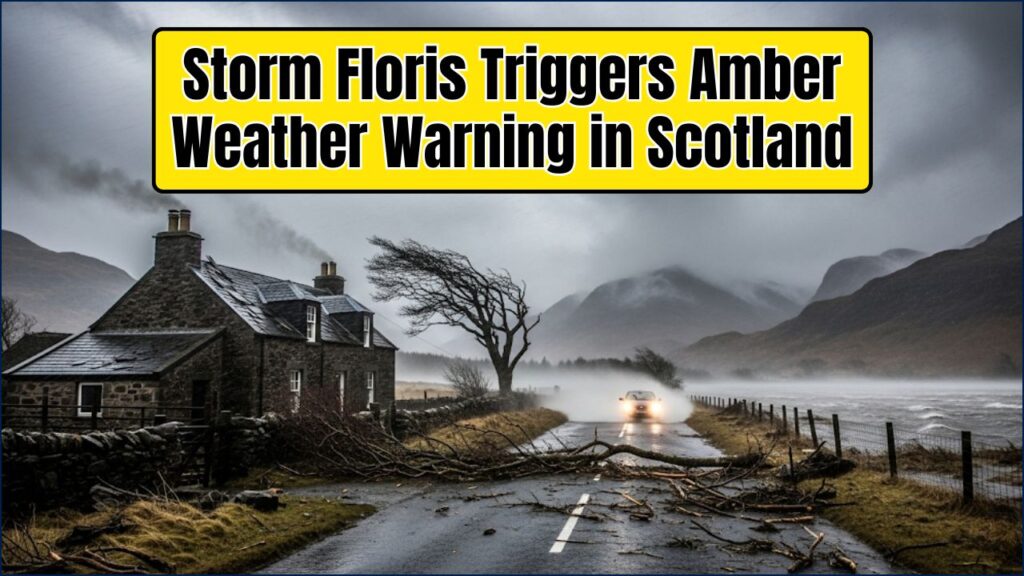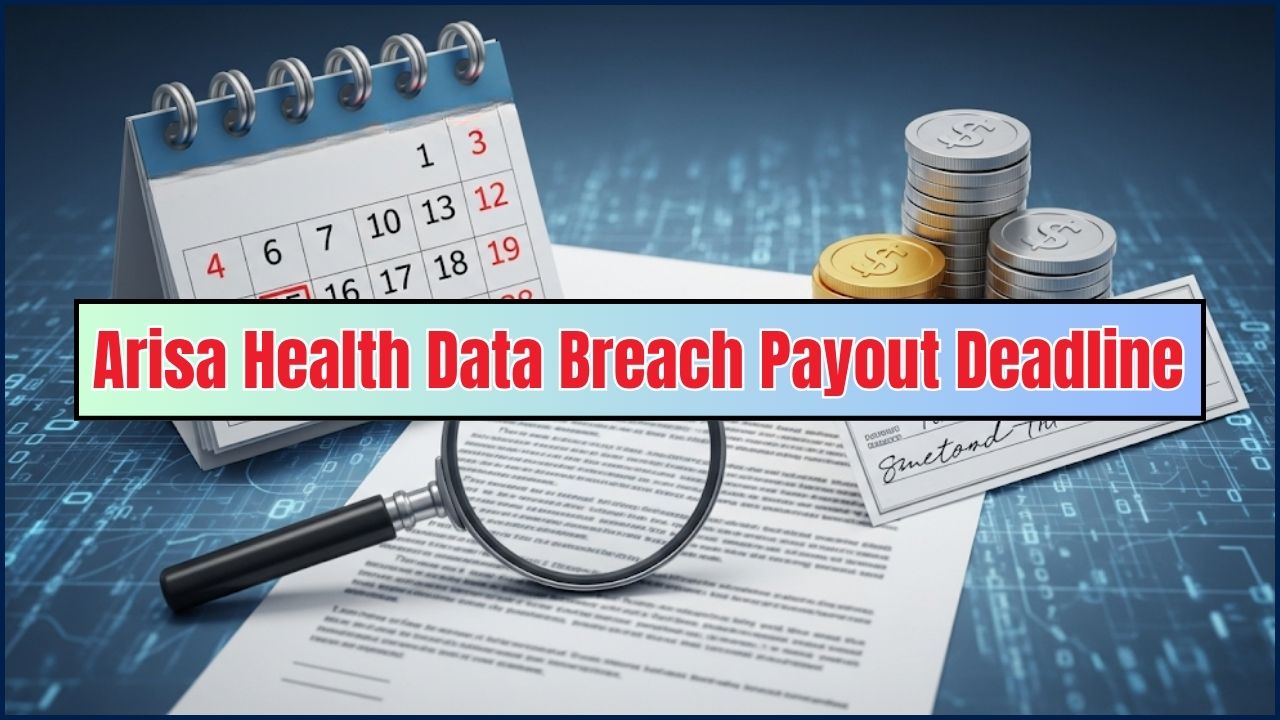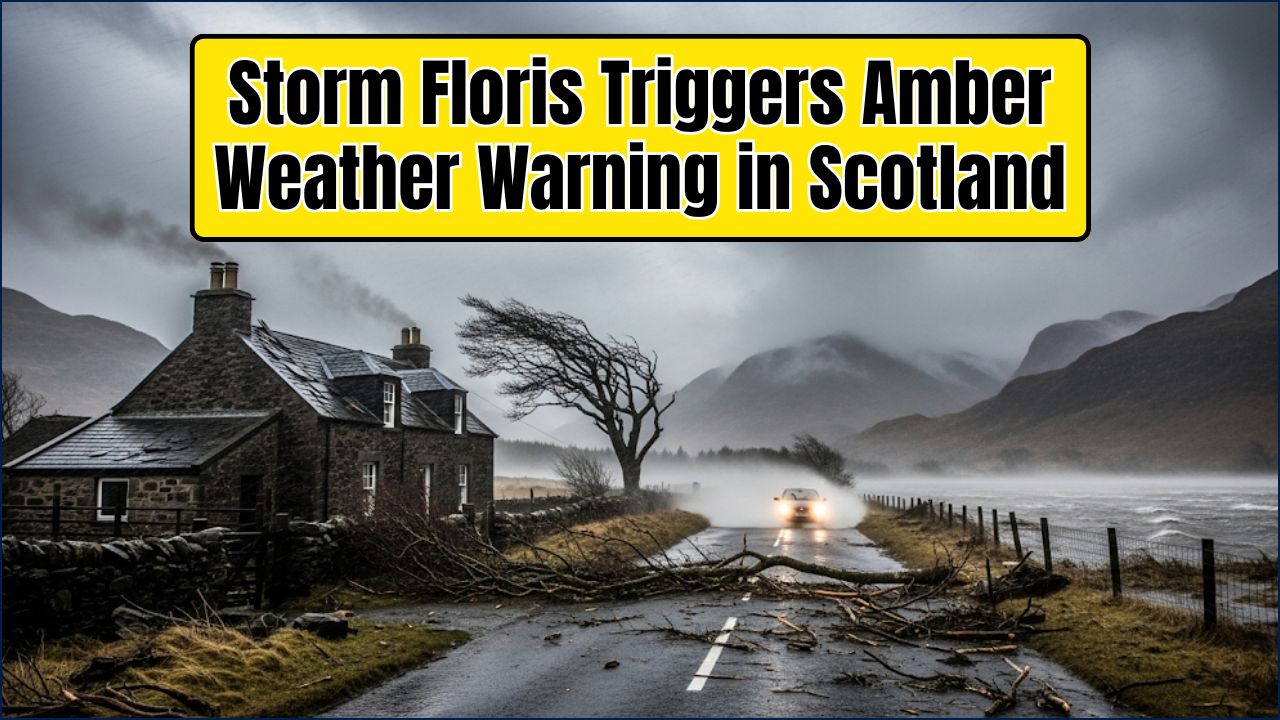When Storm Floris barrels through Scotland with winds reaching 85 miles per hour (MPH) and beyond, you know it’s not just another breezy Monday. This wild summer storm hit hard on August 4, 2025, throwing travel plans into chaos, shutting down iconic tourist spots, and cutting power to thousands of homes. If you’re sitting there wondering what this means for you — or what to do when Mother Nature gets a little moody — don’t worry. We’ve got you.

Storm Floris isn’t just blowing trees around; it’s making headlines across the UK and beyond. Whether you’re a seasoned traveler, a local resident, or just someone trying to understand how a storm can pack such a punch, we’re breaking it all down in this friendly, fact-packed guide. Plus, we’ll explore how climate change, emergency services, and even your travel insurance all play a role in these dramatic weather events.
Storm Floris Triggers Amber Weather Warning in Scotland
| Topic | Details |
|---|---|
| Storm Name | Storm Floris |
| Date of Impact | August 4, 2025 |
| Regions Affected | Scotland, Northern England, Northern Ireland, Orkney, Shetland |
| Top Wind Speeds | 124 MPH at Cairn Gorm, 90-100 MPH widespread |
| Power Outages | Over 43,000 homes impacted |
| Travel Disruptions | Rail, ferry, and air travel canceled or delayed |
| Tourist Impact | Edinburgh Castle, Military Tattoo, Fringe events canceled |
| Insurance Advisory | Claims possible under extreme weather clauses |
| Official Source | Met Office |
Storm Floris was a wake-up call — not just for Scotland, but for anyone underestimating the power of summer storms. With winds that rival hurricanes and disruptions touching every corner of daily life, it’s a reminder to stay prepared and respect weather warnings.
As our climate continues to evolve, one thing’s for sure: being ready isn’t optional. It’s essential.
What Caused Storm Floris and Why It Matters
Storm Floris formed from a deep low-pressure system off the Atlantic, moving quickly into northern parts of the UK. Unlike typical summer showers, this one brought winter-level gusts, making it a record-setter.
The Met Office issued an amber weather warning for Scotland, a clear signal that the storm wasn’t playing around. Amber means potential for damage to life and property — that’s no joke.
“Winds like this in August? That’s rare and risky,” said a Met Office meteorologist.
What Makes Floris Unusual?
- Timing: Happening mid-summer, when most of us expect barbecues and picnics.
- Strength: Gusts over 100 MPH are more typical of January than August.
- Widespread Impact: Urban centers, rural villages, and islands were all hit.
What Happened on the Ground?
Let’s paint the picture. Think overturned campervans, trees snapped like twigs, power lines tossed like spaghetti. Winds reached 124 MPH on Cairn Gorm and hovered around 85–100 MPH across open regions and coastal towns.
Public safety was priority #1. Authorities told folks to stay indoors, avoid unnecessary travel, and tie down anything not nailed to the ground.
Major Disruptions
- Transport: Speed limits of 50 MPH were imposed on ScotRail. Flights were grounded. Ferries? Canceled.
- Tourism: Edinburgh Castle shut its gates. The Royal Edinburgh Military Tattoo was canceled for the first time in 75 years.
- Power Outages: 43,000+ homes went dark. If your lights flickered, you weren’t alone.
- Exam Result Delays: Even SQA exam results were delayed in remote communities. Yep, the storm messed with education, too.
Amber vs. Yellow Weather Warnings
| Warning Level | Likelihood of Impact | Potential Consequences | Recommended Action |
| Yellow | Possible | Some low-level disruption to travel, minor impacts. | Be aware, plan ahead for minor delays. |
| Amber | Increased likelihood | Significant disruption, travel delays, road closures, potential risk to life. | Take action, avoid travel unless essential, secure property. |
New Addition: What Role Did Emergency Services Play?
Shoutout to the first responders, line workers, and local councils who were out there in dangerous conditions!
- Fire and Rescue teams cleared fallen trees blocking roads.
- Utility crews worked through the night restoring power.
- Emergency shelters opened for stranded travelers and vulnerable individuals.
For real-time updates, follow Ready Scotland for emergency preparedness information.
Practical Advice – What to Do When a Storm Hits
Whether you’re chilling in your cabin in the Highlands or live in a downtown apartment in Edinburgh, knowing how to prepare for storms like Floris can save you a ton of headaches (and money).
Step-by-Step Storm Prep Checklist
- Secure Outdoor Items: Trampolines, lawn chairs, grills — tie ’em down or bring ’em inside.
- Charge Your Devices: No power? No problem, if you’ve charged up in advance.
- Pack an Emergency Kit:
- Flashlight & batteries
- Non-perishable snacks
- First-aid supplies
- Extra phone charger
- Stay Updated: Follow Met Office Alerts and local news.
- Avoid Driving: If you have to travel, check traffic updates and keep emergency blankets in the car.
Insurance Matters: Are You Covered?
Not sure if your policy includes storm damage? You’re not alone.
- Home Insurance: Often includes wind and water damage, but check the deductible.
- Travel Insurance: May cover trip cancellations, but not always if it’s a “known event.”
- Business Coverage: Loss of income due to storm closure? Time to review your policy.
Always read the fine print. And if you’re not sure, call your insurer before the next big storm rolls in.
Why This Storm Is a Big Deal (Professionals, Take Note)
For city planners, infrastructure managers, and disaster response teams, Storm Floris is a case study in preparedness.
- Climate scientists are watching how summer storms are becoming stronger.
- Utility companies must evaluate grid vulnerability.
- Tourism boards need crisis communication plans.
- Local governments should revisit building codes, especially for rural homes.
Historical Context
Storm Floris is one of the strongest summer storms to hit Scotland in recent memory. Gusts exceeding 120 MPH are more common in winter, which means weather patterns may be shifting. Stay informed on climate data from UK Met Office Climate Dashboard.
Top 3 Mistakes to Avoid During a Storm
Mistake #1: Underestimating the Wind. An 85mph gust isn’t just a strong breeze. It’s powerful enough to uproot trees, damage roofs, and turn loose items into dangerous flying debris. Don’t assume you can “tough it out” outdoors.
Mistake #2: Not Securing Outdoor Items. That garden furniture, trampoline, or children’s playhouse could become a projectile. Before the storm hits, take a few minutes to bring anything loose indoors or secure it firmly.
Mistake #3: Taking Unnecessary Journeys. Driving in these conditions is extremely dangerous. High winds can cause vehicles to veer off course, and fallen trees or power lines can block roads. If you don’t absolutely need to travel, please stay home.
Fun Facts — Because Weather Can Be Wild
- The fastest wind ever recorded on Earth? 253 MPH during Cyclone Olivia (1996) in Australia.
- Scotland’s windiest place? Cairngorms — no surprise!
- Wind can lift a trampoline over two houses if it’s not secured. Seriously.
FAQs
Q1: Is Storm Floris over?
Yes, but the cleanup and aftereffects may linger for days.
Q2: Will storms like this happen again?
Possibly. Climate experts warn that intense summer storms could become more common.
Q3: Is it safe to travel now?
Check with local authorities and ScotRail, airlines, and ferry operators before making plans.
Q4: How do I know if an amber warning is serious?
Amber means potential risk to life, so always take it seriously. For breakdowns of the UK warning system, visit Met Office Weather Warnings Guide.
Q5: Can I claim damages on insurance for storm impact?
Yes, depending on your policy. Contact your provider and document all damages for your claim.












